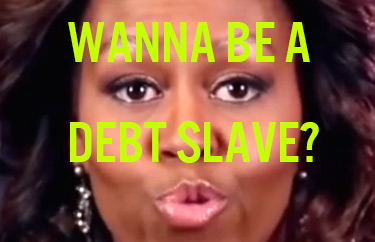[Author]By: Jon Rappoport
wwww.nomorefakenews.com[/Author]
Call it programming, operant conditioning, entrainment, thought control, mind control, emotion control.
The war of back-and-forth competing racial and religious slurs has a planned aspect. It’s a form of propaganda, and it begins with a heavy overemphasis on politically correct speech.
This sets the stage. It establishes an “official level” of sensitivity to language, and promotes the notion that words which exceed this level are uniformly damaging to defined groups.
The program has two goals: inflame feelings to create discord and animosity, and limit, in wide-ranging ways, what a person will permit himself to say or think.
Create an overall sense of caution that goes beyond the racial and religious.
Notice that this objective is the also Surveillance State’s objective. The two programs work hand in glove.
“We’re watching you all the time.” “There are many things you shouldn’t think or say.”
The engendered and encouraged discord between races and religions is ramped up to split society, split it into major groups—not individuals.
We live in an increasingly collectivist nation, and to guide its devolution, leading it into deeper levels of slavery, clearly defined groups must work off their frustrations by attacking each other.
The eventual goal is enlisting everyone in groups, up to their eyeballs.
Thus, an individual’s sense of himself as independent is lost.
This is the program.
It seeks to erase the individual.
Of course, this operation is not merely top-down. People buy in. They identify completely with their groups.
This identification has been the way of the world since the dawn of time.
In recent history, to see government’s role in defining groups and exacerbating tensions among them, consider the blizzard of US hate-crime laws.
The Violent Crimes Control and Law Enforcement Act of 1994; the Matthew Shepard and James Byrd, Jr. Hate Crime Prevention Act of 2009; two laws (1990 and 1997) that established requirements for reporting hate-crime statistics, at the federal level and on college campuses; and the 45 state laws defining hate crimes.
These laws create and enforce “protected groups” and attempt to elevate penalties for crimes committed against them. They are “special circumstance” laws.
They officially harden barriers between groups of Americans and set the stage for acrimonious arguments about what criminal suspects were thinking at the time they attacked their victims.
However, the whole import and basis of law in society is: a crime is a crime is a crime. Reading a defendant’s intention of no part of that. Laws apply to everyone, perpetrator and victim, across the board. “Equal protection under the law.”
The above hate-crime legislation did not introduce “new crimes.” They were already on the books. They already existed. They already could be prosecuted.
Hate-crime laws did create greater distance and new conflicts between groups. Society was further fractured. That goal was achieved.
These laws highlighted “bad intentions” toward race, nationality, religion, gender, ethnicity, sexual orientation, and disability.
Could any program of legislation invent more disharmony?
Hate-crime laws, filtering down, have had major cultural implications: “Well, I’m part of a federally protected group. So now I can be on the lookout for any slight, slur, sign of intimidation against my group. And when I see one, I can demand redress of wrongs. To make sure I remain protected, I can even invent imaginary slights and actions. The ends (protection) justify the means. I can commit crimes and avoid prosecution…”
In the homogenized every-day culture, “wrong thought and wrong intent” become divorced from violent crime. People pick up the clue: they need to police themselves, their thoughts, their ideas, their emotions.
There is a difference between decentralized political power (for example, state nullification of unconstitutional federal actions) and racial, ethnic, and religious groups walling themselves off from the rest of society and claiming special status. The melting pot doesn’t melt anymore. It devolves into collectives hating other collectives.
And ultimately, the individual is on the outside looking in at a nightmare. The best ideas of the original flawed Republic go begging. The ideal of the free and independent individual drowns in cultural propaganda, aimed at dragging us back to an earlier time, when George Washington found it necessary to warn Americans to stay clear of entangling foreign alliances.
Well, those words now have new and strange meaning. America is now being recreated as a series of separate enclaves, in which all competing groups are psychologically foreign to each other, on domestic soil.
A Republic limits the power of government, and what power government legitimately possesses is supposed to be in service of freeing the individual to pursue his goals.
That agenda has been attacked since its inception.
Group consciousness=group separation=mutual group hostility is a major aspect of the attack.
Governments favor this equation. They use it every day:
“We are the peacemakers. We will resolve these differences…as we encourage and stimulate them.”
(Jon Rappoport is the author of three explosive collections, The Matrix Revealed, Exit From The Matrix, and Power Outside The Matrix).



